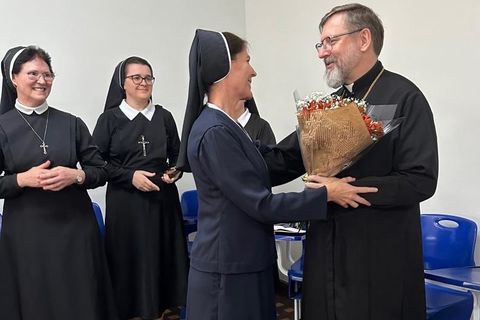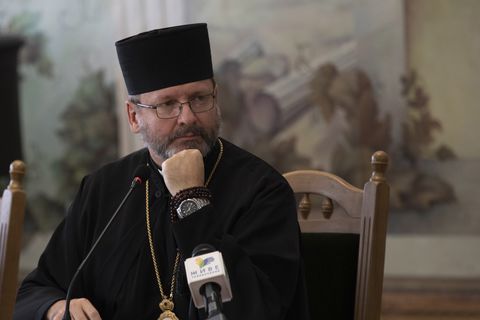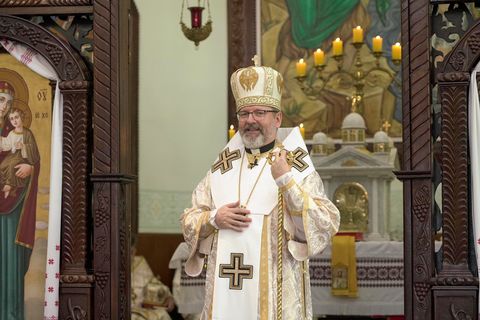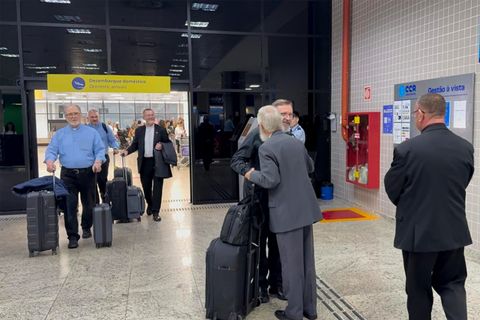“When a person gives alms, he gives not what he has, but who he is,” said His Beatitude Sviatoslav, Head of the UGCC
During Lent, a person handles himself and his relationship with God and his neighbors. Almsgiving is not about money but about managing relationships with one’s neighbor. The Head of the UGCC, His Beatitude Sviatoslav, speaks about what almsgiving is in its essence, what it can and should be, in a live broadcast of the Open Church.
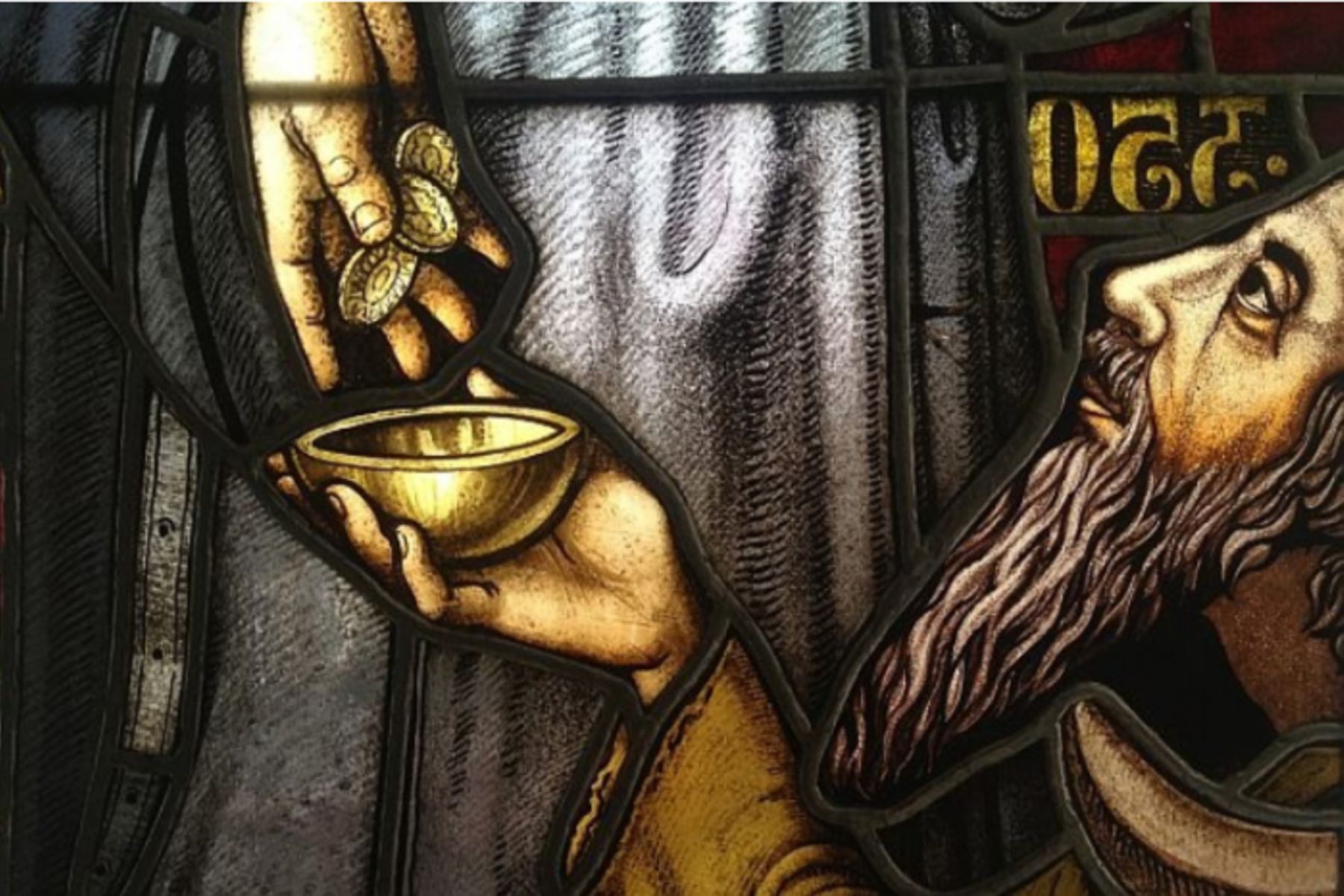
“We say that fasting is not about food. The same we can see about almsgiving — it is not about money,” said His Beatitude Sviatoslav.
His Beatitude explains the essence of almsgiving, based on the definition of the Father and Teacher of the Church, Peter Chrysologus (Peter of the Golden Words): “Prayer, fasting and almsgiving constitute three dimensions of one reality. The Father of the Church, Peter Chrysologus, eloquently explains these three dimensions of spiritual truth. He says that when we fast, we can receive from God what we ask Him for in prayer. In fasting, we open our hearts to God: He listens to our prayer if it is accompanied by fasting, namely, the involvement of our whole being in what we ask for. And when we give alms, we can receive what we ask ourselves. Peter Chrysologus says: how can you deny another what you ask for? If you are a supplicant to God and want Him to be responsive and attentive to you, do the same to someone who asks you for something.”
His Beatitude Sviatoslav shares his experience of experiencing what St. Peter Chrysologus says: “He felt that true deep prayer requires fasting. Let us recall how sometimes, someone stands up and begins to speak in a company while others continue to talk among themselves. Then, to attract attention, the speaker begins to tap on a dish as if to say, ‘Attention!’ After that, everyone stops talking and listens. Something similar happens in our souls when we pray and fast: all other voices in our hearts become silent, and the most resounding voice begins to speak, with which we address the Lord God. Then we hear better what we say, understand and experience better what we are addressing Him.
I have also experienced the second dimension that Peter Chrysologus speaks of in myself and others: when we fast but do not give alms, we become very aggressive. Yes, when you fast, sometimes you start to be hurtful and angry — you look at others and become very harsh! Peter Chrysologus says that fasting without alms dries up a person, so almsgiving during fasting is like rain that fertilizes the earth. If you fast and give alms, your fast is better; alms placate you. When you give alms, you are not just doing good to the person to whom you give it; you are doing good to yourself first and foremost. You become better yourself, humanly and spiritually. These alms fertilize you, as rain makes the earth fruitful. It makes you able to receive what you ask God for in prayer. That is why we say that I do not lose anything when I give alms. Moreover, I sometimes benefit more from my alms than those I give them. That is why I need alms first and foremost.”
What can it be if alms is not necessarily money or something material?
“There are many different forms,” says His Beatitude, “We can perform works of mercy when we care about another person; when we offer them our time; when we share our personal experience so that another person can benefit from it; when we teach someone; when we share all that we are with the person who needs our help. That is, not all charity can be lessened to material manifestations. An ancient Christian practice proposes that all that we save when we limit ourselves to entertainment or some pleasure during Lent, all that we have saved because of this restriction, we should give away. As small children, we were once taught that during Lent, you would not eat chocolate or ice cream, and what you save, you will give to someone who may be in great need.
We saw young children donating to the army what was the most precious to them — their gadgets. And they said: ‘Why do I need a gadget if there is no Ukraine?’ We see a profound understanding of a small child: when a person gives alms, he provides not what he has but who he is. So then, this gesture of almsgiving is part of a personal spiritual feat.”
The UGCC Department for Information